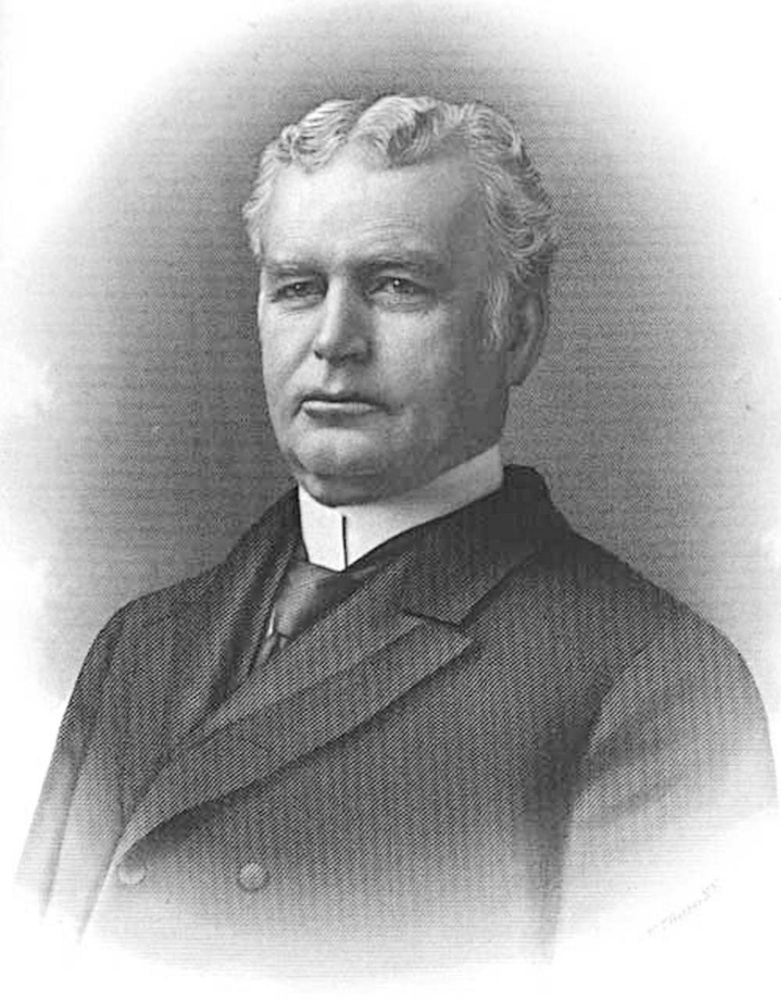I am going to set forth the details of an outstanding historical undertaking that took place here in Maine and then relate it to the present political and economic situation.
There is a town up in the western hills of Maine called Rumford. On a cold winter’s day in 1882, an entrepreneur named Hugh J. Chisholm viewed the falls in the river there and immediately had a dream. He would harness the falls with a dam and build a power plant. He would build a great mill to make paper and a mill to make bags out of paper.
He would build a town, laying out the streets himself on a map. He would design a shoppers’ island in which the buildings on some of the corners would be classically designed, There would be an “institute” building (a forerunner of a YMCA) where children and adults could play indoors in the winter.
Railroads would be laid up to the Rangeley area to transport wood from which paper is made. Immediately this passageway to Maine’s interior would be discovered by rich folks from New York and Washington, D.C., who would develop Rangeley into a Teddy Roosevelt-type vacation land. President Dwight Eisenhower would play golf there. Of course, a railroad would be laid to connect Rumford to the Maine Central system.
The piece de resistance was to be Strathglass Park, a classy housing area for Chisholm’s mill workers, modeled after architecture in Scotland, the home of his ancestors, and named after their birthplace.
All of this dream came to be. Thousands of young people came from all over the world and found good jobs in the mills. My father and his brothers emigrated from Prince Edward Island and were soon able to own homes of their own in nice neighborhoods. Others came from Quebec and from Italy, Lithuania and Poland. Young ladies got jobs in the bag mill. The prosperity overflowed into Mexico, the adjacent town across the river.
I had a great life growing up in Rumford. There were several elementary public schools and a high school and two parochial schools. There was a wooded park at the summit of the town, Summit Park, furnished with benches along well-kept trails, a favorite place for boys to play “cops and robbers.” There was a children’s park along the river, called Chisholm Park, with play equipment. There is a regional hospital, where I was born, and there was a nursing school attached to it.
Needy people were taken care of. No one lived on the streets. There was a “poor farm,” where people without the means to support themselves lived and worked for room and board. There was even a “pest house,” closed before I was born; it had housed those who had highly contagious diseases, or pestilences, and nowhere else to go.
In other words, Hugh J. Chisholm lifted people out of poverty. Everybody wants this for all our citizens and for the whole world. It is a beautiful expression. It is used by politicians of all parties and recent popes. How to bring it about? No “programs” would have been able in any way to even touch what Chisholm did.
So how was Mr. Chisholm able to accomplish this? Born and raised in Ontario, he left school after eighth grade and went to work because his father had died, so he had no formal education in engineering. What interests me now is the decisions that had to be made at the time: by the town of Rumford, by the officials of Oxford County, by the Maine Legislature and, of course, by banks — maybe by banks here in Maine, but most likely by New York investment banks.
OK, that was then, this is now. There are Mainers among us today who need to be lifted out of poverty. As political candidates stand at their podiums during the coming months, there is only one question we should ask them: “What are you going to do (or not do) to aid and abet the next Hugh J. Chisholm, who may come to us from another country or who may already be in our midst, who has a grand dream to lift people out of poverty? Please be specific.”
The Rev. Joseph R. McKenna is a Portland resident, a native of Rumford and a semi-retired priest of the Roman Catholic Diocese of Portland who worked in several towns in Maine.
Copy the Story LinkSend questions/comments to the editors.



Success. Please wait for the page to reload. If the page does not reload within 5 seconds, please refresh the page.
Enter your email and password to access comments.
Hi, to comment on stories you must . This profile is in addition to your subscription and website login.
Already have a commenting profile? .
Invalid username/password.
Please check your email to confirm and complete your registration.
Only subscribers are eligible to post comments. Please subscribe or login first for digital access. Here’s why.
Use the form below to reset your password. When you've submitted your account email, we will send an email with a reset code.